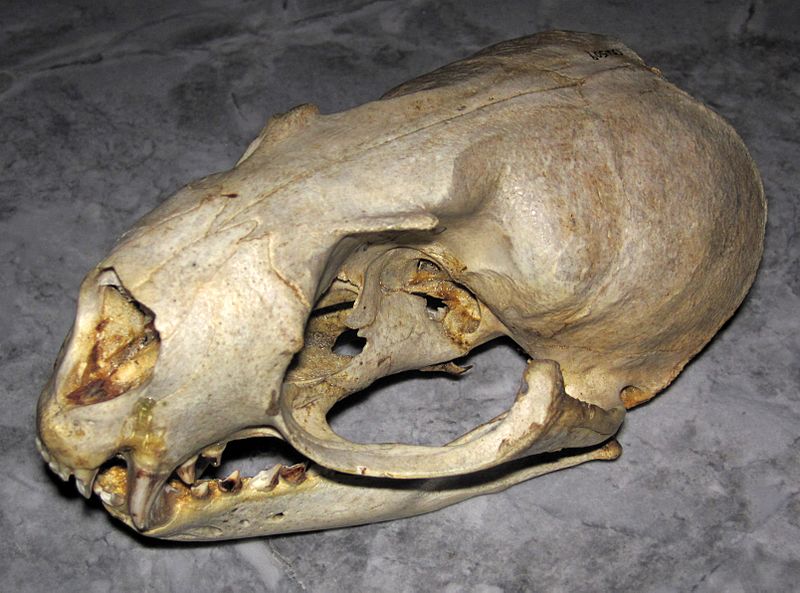Image: Callorhinus ursinus (northern fur seal) skull 5 (33777293428)

Description: Callorhinus ursinus (Linnaeus, 1758) - northern fur seal skull (oblique anterolateral view). (Ohio State University Museum of Zoology)
Mammals are the dominant group of terrestrial vertebrates on Earth today. The group is defined based on a combination of features: endothermic (= warm-blooded), air-breathing, body hair, mother's milk, four-chambered heart, large brain-to-body mass ratio, two teeth generations, differentiated dentition, and a single lower jawbone. Almost all modern mammals have live birth - exceptions are the duck-billed platypus and the echidna, both of which lay eggs.
Mammals first appear in the Triassic fossil record - they evolved from the therapsids (mammal-like reptiles). Mammals were mostly small and a minor component of terrestrial ecosystems during the Mesozoic. After the Cretaceous-Tertiary mass extinction at 65 million years ago, the mammals underwent a significant adaptive radiation - most modern mammal groups first appeared during this radiation in the early Cenozoic (Paleocene and Eocene).
Three groups of mammals exist in the Holocene - placentals, marsupials, and monotremes. Other groups, now extinct, were present during the Mesozoic.
Northern fur seals are native to the western coasts of America and Canada, the coasts of Alaska, the Aleutian Islands, and the eastern coasts of northeastern Asia.
Classification: Animalia, Chordata, Vertebrata, Mammalia, Carnivora, Pinnipedia, Otariidae
See info. at:
<a href="https://en.wikipedia.org/wiki/Northern_fur_seal" rel="noreferrer nofollow">en.wikipedia.org/wiki/Northern_fur_seal</a>
Author: James St. John
Usage Terms: Creative Commons Attribution-Share Alike 3.0
License: CC-BY-SA-3.0
License Link: http://creativecommons.org/licenses/by-sa/3.0/
Attribution Required?: Yes
Image usage
The following page links to this image:

